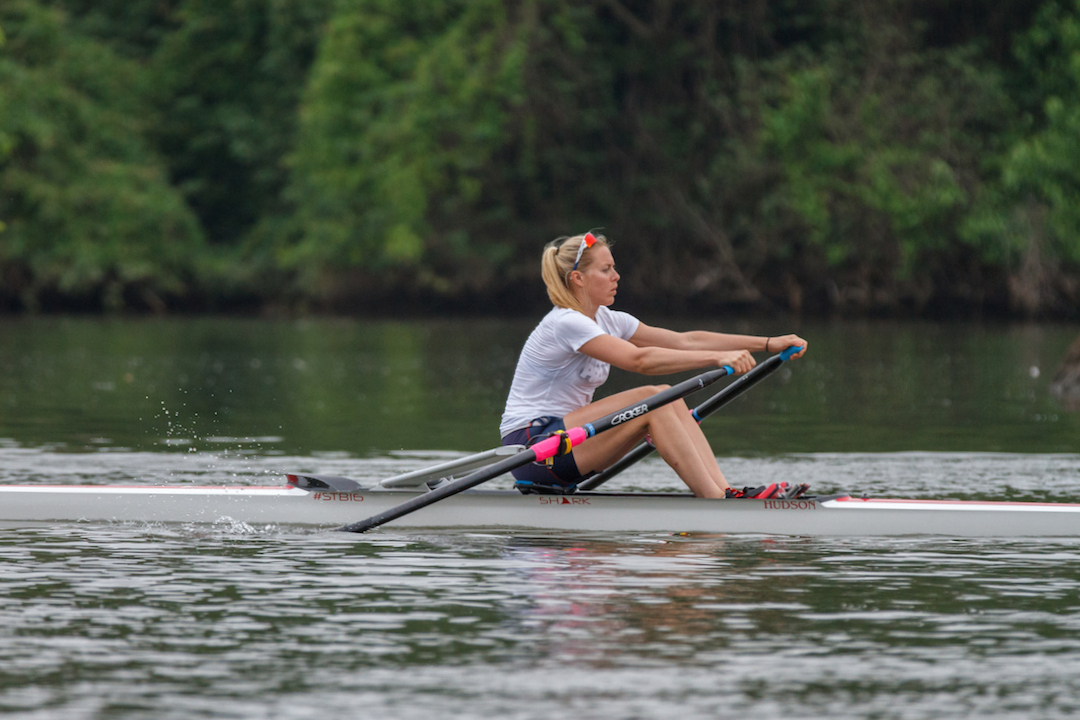RR Op-Ed: On the Line in London–Can Anyone Beat 'Ze Germans?'
The German men's eight has been nothing short of dominant for the past four years–controlled, smooth, and efficient, the crew has set the standard for speed since Beijing. That winning streak will see its greatest challenge at Eton-Dorney this week and the next, as the DRV (Deutscher Ruderverband) look to put an exclamation point on an outstanding quadrennium. Can anyone beat them? If anyone's going to do it, then the challenger will have to match the speed of the German eight in the second 500m.
Obviously, the Germans know how to get off the line–they've gone wire-to-wire a number of times over the past four years en route to victory, often posting times faster than 1:20 in the first 500m. But, looking over the data from the past three seasons, as well as the World Rowing Cups this year, it's more often the second 500m where they stake their claim and build their margin over the field. The fact is, everyone has a slower second 500m than first 500m, but the difference is nearly always slightly less in the case of the German men's eight–in other words, they do not take their feet off the gas after crossing the first 500m mark, and consistently outpace the field in the second 500m by more than they did in the first 500m. This gives them a clear advantage by the 1000m mark–a position from which they are comfortable responding to attacks and fending off challenges. Once they are in a position of control, they are simply too good–they are not going to die in the final stretch.
Taking a look at the Poznan World Championships in 2009, the Germans and Canadians came out of the blocks with guns blazing, both crews on 1:17 through 500m. However, the Canadian crew came through the 1000m mark down by more than a second and a half–the Germans posted a time of 1:20.82 in the second 500m, and continued to edge out throughout the second half of the race. Karapiro was, in many ways, an anomale for the German crew, as their second 500m was decidedly unspectacular by their own standards, slowing from a 1:21.76 pace to a 1:24.62. The difference? They had a two second lead over second place GB by the first marker, and managed their efforts extremely well through the body of the race, keeping enough in reserve to lay down a 1:21.75 on the way to the line to hold off a British surge.
Last year in Bled, the German men's eight executed to perfection. Leading by roughly one second at 500m into the race, they pressed on, taking an advantage of more than two seconds over second place GB by the 1000m mark–where the race was won. After that point, the Germans essentially matched pace with the GB crew, carrying that two second advantage across the line.
Given this, you're not going to defeat the German men's eight unless you hold onto them through the halfway point. The GB men's eight did a fantastic job attacking in the final of the Belgrade World Rowing Cup earlier this year, leading through the 1000m mark, but couldn't match pace in the second half of the race. This speaks both to the gutsy nature of the crew from Team GB, as well as to the confidence of the German combination, showing poise and composure despite unfamiliar circumstances. Perhaps the key, then, is not to try to lead the Germans across the 500m or even the 1000m mark–the Brits paid dearly for their fast first 1000m in Belgrade, falling to the DRV crew by roughly three seconds by the time they crossed the finish–instead, it may be that to hold on, and not allow the German crew to build a lead of more than one second is the key to throwing down a serious challenge for gold.
Maturity and race management will be on full display as the Olympic Regatta kicks off tomorrow morning, and everyone knows that GB will be gunning to turn silver into gold before the home crowd. In our opinion, the only way to accomplish that goal is to position yourself well in relation to the favorites. If the British crew can manage to hold on well enough to Germany through the 1000m mark, then they just might be able to achieve something truly special in the final stretch. However, as the 2010 world championship final showed, the Germans are not going to crack under the pressure. If a crew were to defeat Germany, that crew will truly earn the victory–they'll be nothing gift-wrapped in Eton this summer.
-RR

